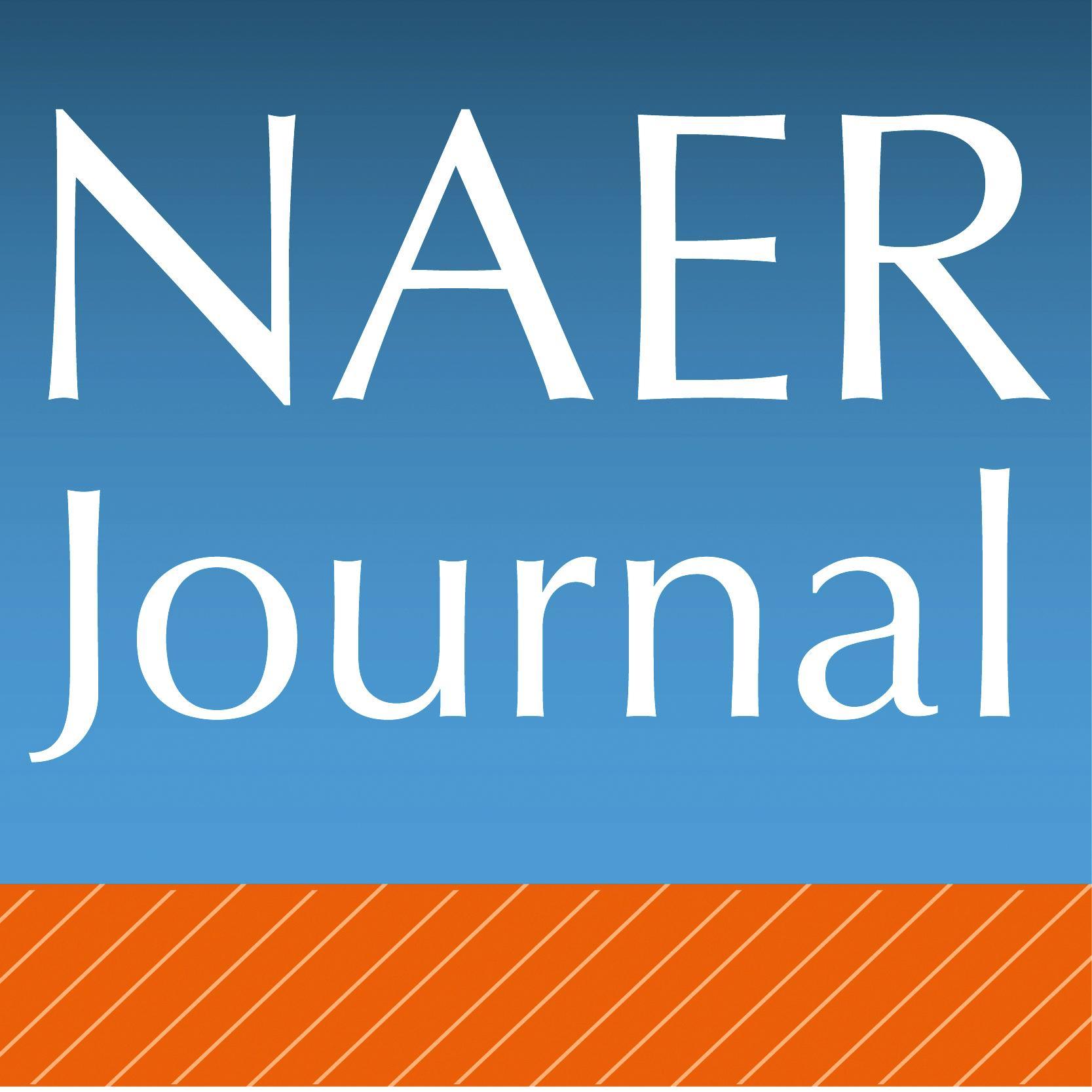Competencia digital, actitudes y expectativas hacia las tecnologías digitales. Perfil de los futuros maestros de primaria
Resumen
Este estudio pretende trazar un perfil del alumnado que cursa el Grado de Maestro en Educación Primaria en relación a sus hábitos en el uso de las tecnologías digitales, la percepción sobre su competencia digital, así como de las expectativas y actitudes hacia el uso de la tecnología en su ámbito personal y académico. Se realiza asimismo una comparación entre alumnos pertenecientes a dos planes de estudios distintos. Los datos se obtienen mediante el cuestionario INCOTIC 2.0. Tras el análisis de datos se evidencia el alto uso que hacen de la tecnología a través de dispositivos móviles y portátiles, especialmente en el ámbito de las relaciones sociales. Se muestra una buena actitud hacia el uso académico de la tecnología y una favorable expectativa de uso. En cuanto a la percepción de la competencia digital, destacan en las alfabetizaciones comunicativa y multimedia. Comparando ambos grupos, no se observan diferencias significativas en la mejora de la competencia digital, estas se limitan al ámbito comunicativo, las actitudes y las expectativas que tiene el estudiantado hacia las TIC. De acuerdo con los resultados, se propone incidir en la mejora de las áreas informacional y tecnológica, ambas fundamentales para su desarrollo profesional docente.
Descargas
-
Resumen2073
-
PDF1272
-
PDF Kindle1272
Citas
Ala-Mutka, K. (2011). Mapping digital competence: Towards a conceptual understanding. Institute for Prospective Technological Studies. https://bit.ly/3qYETP8
Anderson, M. & Jiang, J. (2018). Teens’ social media habits and experiences. Pew Research Center, 28. https://bit.ly/3c1ybnn
Antunovic, D., Parsons, P. & Cooke, T. R. (2018). ‘Checking’ and googling: Stages of news consumption among young adults. Journalism, 19(5), 632-648. https://doi.org/10.1177/1464884916663625
Bawden, D. (2008). Origins and concepts of digital literacy. Digital literacies: Concepts, policies and practices, 30, 17-32.
Boyd, D. (2014). It’s complicated: The social lives of networked teens. Yale University Press.
Bullen, M., Morgan, T. & Qayyum, A. (2011). Digital Learners in Higher Education: Generation is Not the Issue. Canadian Journal of Learning and Technology, 37(1). https://doi.org/10.1111/ejed.12345
Caena, F. & Redecker, C. (2019). Aligning teacher competence frameworks to 21st century challenges: The case for the European Digital Competence Framework for Educators ( Digcompedu). European Journal of Education, 54(3). https://doi.org/10.1111/ejed.12345
Calvani, A., Fini, A., Ranieri,M. & Picci, P.(2012). Are young generations in secondary school digitally competent? A study on Italian teenagers. Computers & Education, 58(2), 797- 807. https://doi.org/10.1016/j.compedu.2011.10.004
Camacho, M. & Esteve, F. M. (2018). El uso de las tabletas y su impacto en el aprendizaje. Una investigación nacional en centros de Educación Primaria. Revista de Educación, 379. https://doi.org/10.4438/1988-592X-RE-2017-379-366
Claro, M., Preiss, D. D., Martín, E. S., Jara, I., Hinostroza, J. E., Valenzuela, S., Cortes, F. & Nussbaum, M. (2012). Assessment of 21st century ICT skills in Chile: Test design and results from high school level students. Computers & Education, 59(3), 1042-1053. https://doi.org/10.1016/j.compedu.2012.04.004
Comisión Europea. (2018). Recomendación del Consejo de 22 de mayo de 2018 relativa a las competencias clave para el aprendizaje permanente. Diario Oficial de la Unión Europea, 4-6-2018, C 189, 1-13. https://bit.ly/3rV6AJU
Covello, S. & Ley, J. (2010). A review of Digital Literacy Assessment Instruments. Syracuse University, 1-31. https://bit.ly/3bUeoWO
Davis, F. (1989). Perceived Usefulness, Perceived Ease of Use and User Acceptance of Information Technology. Quarterly MIS, 319-340. https://doi.org/10.2307/249008
Domingo, M. & Marquès, P. (2011). Aulas 2.0 y uso de las TIC en la práctica docente. Comunicar, 19(37), 169-175. https://bit.ly/2OIqJV7
Ferrari, A., Punie, Y. & Redecker, C. (2012). Understanding digital competence in the 21st century: An analysis of current frameworks. In A. Ravenscroft, S. Lindstaedt, C. Delgado y D. Hernández-Leo (Eds.), 21st century learning for 21st century skills, (pp. 79-92). Springer. https://doi.org/10.1007/978-3-642-33263-0_7
Ferrari, A. (2013). DIGCOMP: A framework for developing and understanding digital competence in Europe. Institute for Prospective Technological Studies (IPTS), European Commission. https://bit.ly/3cIq91G
Gallardo-Echenique, E. E., Marqués-Molías, L., Bullen, M., & Strijbos, J. W. (2015). Let’s talk about digital learners in the digital era. International Review of Research in Open and Distributed Learning, 16(3), 156-187. https://doi.org/10.19173/irrodl.v16i3.2196
Gilster, P. (1997). Digital literacy. Wiley Computer.
Goggin, G. (2013). Youth culture and mobiles. Mobile Media & Communication, 1(1), 83-88. https://doi.org/10.1177/2050157912464489
González, J., Esteve-Mon, F. M., Larraz, V., Espuny, C., & Gisbert, M. (2018). INCOTIC 2.0. Una nueva herramienta para la autoevaluación de la competencia digital del alumnado universitario. Profesorado: Revista de curriculum y formación del profesorado, 22(4), 133-152. https://doi.org/10.30827/profesorado.v22i4.8401
Guo, X., Sun, Y., Wang, N., Peng, Z. & Yan,Z. (2013). The dark side of elderly acceptance of preventive mobile health services in China. Electronic Markets, 23(1), 49-61. https://bit.ly/3cCwBr8
Hatlevik, O. E. & Christophersen, K.-A. (2013). Digital competence at the beginning of upper secondary school: Identifying factors explaining digital inclusion. Computers & Education, 63, 240-247. https://doi.org/10.1016/j.compedu.2012.11.015
Karahanna, E., Agarwal, R. & Angst, C. M. (2006). Reconceptualizing compatibility beliefs in technology acceptance research. MIS quarterly, 30(4), 781-804. https://doi.org/10.2307/25148754
Kennedy, G., Dalgarno, B., Gray, K., Judd, T., Waycott, J., Bennett, S., Maton, K., Krause, K. L., Bishop, A. & Chang, R. (2007). The net generation are not big users of Web 2.0 technologies: Preliminary findings. ICT: Providing choices for learners and learning, 517-525. https://bit.ly/3tr4SAj
Kirschner, P. A. & De Bruyckere, P. (2017). The myths of the digital native and the multitasker. Teaching and Teacher Education, 67, 135-142. https://doi.org/10.1016/j.tate.2017.06.001
Larraz, V. (2012). La competència digital a la Universitat. [Tesis doctoral]. Universitat d’Andorra.
Livingstone, S.; Kardefelt, D. & Saeed, M. (2019). Global Kids Online Comparative Report, Innocenti Research Report. UNICEF Office of Research. https://bit.ly/3eJgRFd
Martin, A. (2005). DigEuLit–a European framework for digital literacy: A Progress Report. Journal of eLiteracy, 2(2), 130-136.
Meyers, E. M., Erickson, I. & Small, R. V. (2013). Digital literacy and informal learning environments: An introduction. Learning, Media and Technology, 38(4), 355-367. https://doi.org/10.1080/17439884.2013.783597
Oblinger, D. G. & Oblinger, J. L. (2005). Educating the net generation. Educause.
Oreg, S. (2003). Resistance to change: Developing an individual differences measure. Journal of applied psychology, 88(4), 680. https://doi.org/10.1037/0021-9010.88.4.680
Pedró, F. (Septiembre de 2009). New Millennium learners in higher education: Evidence and policy implications. [Sesión de conferencia] International Conference on 21st Century Competencies, Centre for Educational Research and Innovation (CERI), Bruselas. https://bit.ly/3vHkZvq
Prendes, M. P., Castañeda, L. & Gutiérrez, I. (2010). Competencias para el uso de TIC de los futuros maestros. Comunicar, Revista Científica de Educomunicación, 18(35). https://bit.ly/2P3p9gg
Prensky, M. (2001). Digital Natives, Digital Immigrants. On the Horizon, 9(5), 1-6. https://doi.org/10.1108/10748120110424816
Rogers, E. M. (1962). Diffusion of innovations. Free Press of Glencoe.
Selwyn, N. (2009). The digital native–myth and reality. Aslib Proceedings: New Information Perspectives, 61(4). https://doi.org/10.1108/00012530910973776
Siddiq, F. & Scherer, R. (2019). Is there a gender gap? A meta-analysis of the gender differences in students’ ICT literacy. Educational Research Review, 27, 205-217. https://doi.org/10.1016/j.edurev.2019.03.007
Solomon, A., Wilson, G. & Taylor, T. (2011). 100% Information Literacy Success. Nelson Education.
Spante, M., Hashemi, S. S., Lundin, M. & Algers, A. (2018). Digital competence and digital literacy in higher education research: Systematic review of concept use. Cogent Education, 5(1), 1-21. https://doi.org/10.1080/2331186X.2018.1519143
Stoilova, M., Livingstone, S. & Mascheroni, G. (2020). Digital childhood? Global perspectives on children and mobile technologies. In R. Ling, L. Fortunati, G. Gog - gin, Y. Li & S. S. Lim (Eds.), The Oxford Handbook of Mobile Communication and Society (pp. 129-143). Oxford University Press.
Tejedor, F.J. & García-Varcárcel, A. (2006). Competencias de los profesores para el uso de las TIC en la enseñanza. Análisis de sus conocimientos y actitudes. Revista Española de Pedagogía, 233; 21-44. https://bit.ly/30QBjfe
Valtonen, T., Pontinen, S., Kukkonen, J., Patrick, D., Väisänen, P. & Hacklin, S. (2011). Confronting the technological pedagogical knowledge of Finnish Net Generation student teachers. Technology, Pedagogy and Education, 20(1), 3-18. https://doi.org/10.1080/1475939X.2010.534867
Venkatesh, V. & Bala, H. (2008). Technology acceptance model 3 and a research agenda on interventions. Decision sciences, 39(2), 273-315. https://doi.org/10.1111/j.1540-5915.2008.00192.x
Vogels, E., Perrin, A., Rainie, L. & Anderson, M. (2020). 53% of Americans Say the Internet Has Been Essential during the COVID-19 Outbreak. Pew Research Center. https://pewrsr.ch/312oIFL
Windschitl, M. & Sahl, K. (2002). Tracing teachers’ use of technology in a laptop computer school: The interplay of teacher beliefs, social dynamics, and institutional culture. American educational research journal, 39(1), 165-205. https://doi.org/10.3102/00028312039001165
Derechos de autor 2021 María Ángeles Llopis Nebot, María Santágueda Villanueva, Francesc Marc Esteve Mon

Esta obra está bajo una licencia internacional Creative Commons Atribución-NoComercial-CompartirIgual 4.0.
Aquellos autores que tengan publicaciones con esta revista aceptan los términos siguientes :
-
Los autores conservarán sus derechos de autor y garantizarán a la revista el derecho de primera publicación de su obra, el cuál estará simultáneamente sujeto a la Licencia Creative Commons Atribución no comercial compartir por igual 4.0 Internacional que permite compartir, copiar y redistribuir el material en cualquier medio o formato y adaptar, remezclar, transformar y construir sobre el material en los siguientes términos:
Reconocimiento - Debe dar el crédito apropiado, proporcionar un enlace a la licencia, e indicar si se han realizado cambios. Puede hacerlo de cualquier manera razonable, pero no de una manera que sugiere que el licenciante o su uso hace suya. No comercial - No puede utilizar el material con fines comerciales. Compartir bajo la misma - Si remezcla, transformar o crear sobre el material, se debe distribuir sus contribuciones bajo la misma licencia que el original. -
Los autores podrán adoptar otros acuerdos de licencia no exclusiva de distribución de la versión de la obra publicada (p. ej.: depositarla en un archivo telemático institucional o publicarla en un volumen monográfico) siempre que se indique la publicación inicial en esta revista.
-
Se permite y recomienda a los autores difundir su obra a través de Internet (p. ej.: en archivos telemáticos institucionales o en su página web) antes y durante el proceso de envío, lo cual puede producir intercambios interesantes y aumentar las citas de la obra publicada. (Véase El efecto del acceso abierto).
-
En cualquier caso, el Equipo Editorial entiende que las opiniones vertidas por los autores son de su exclusiva responsabilidad.
















